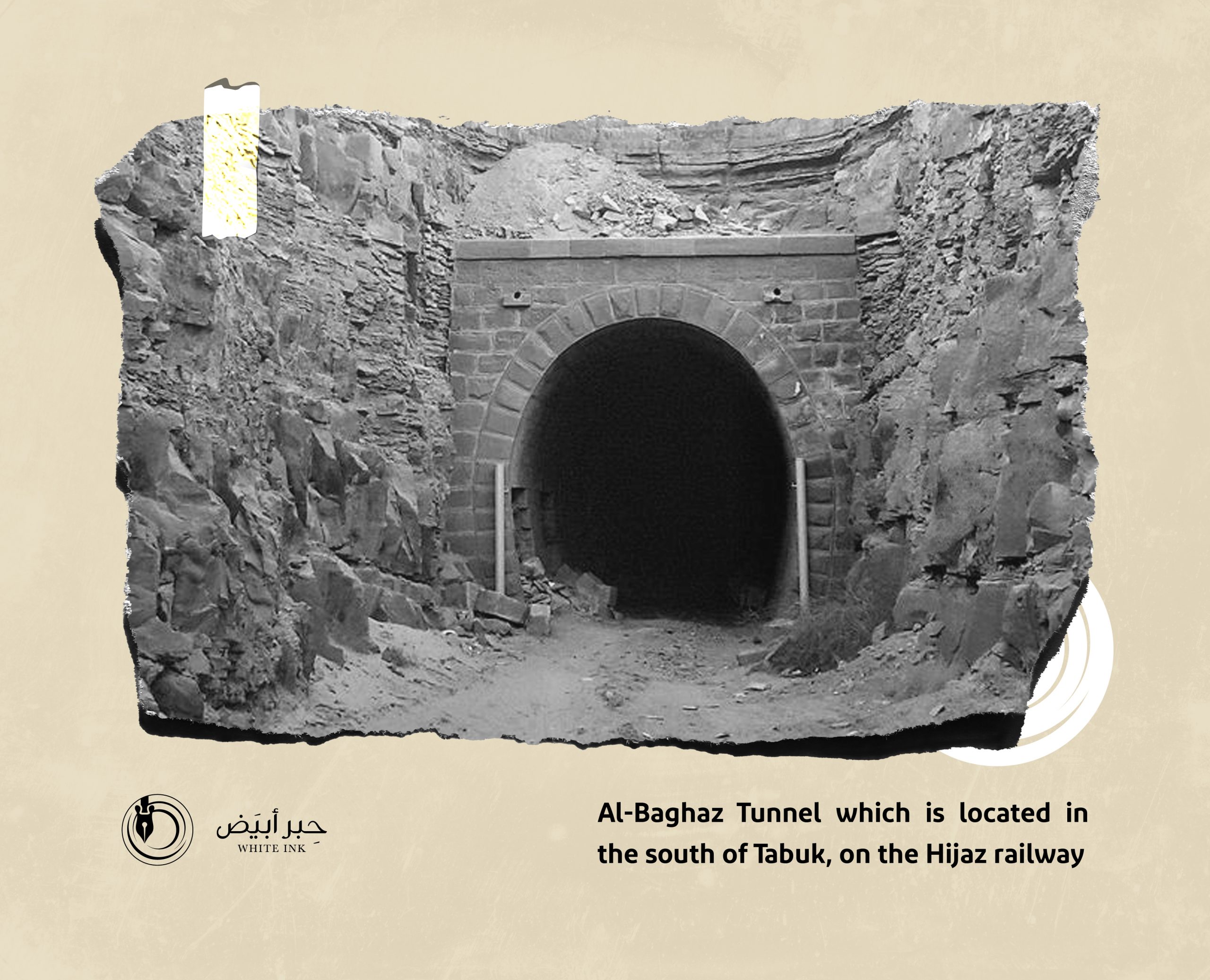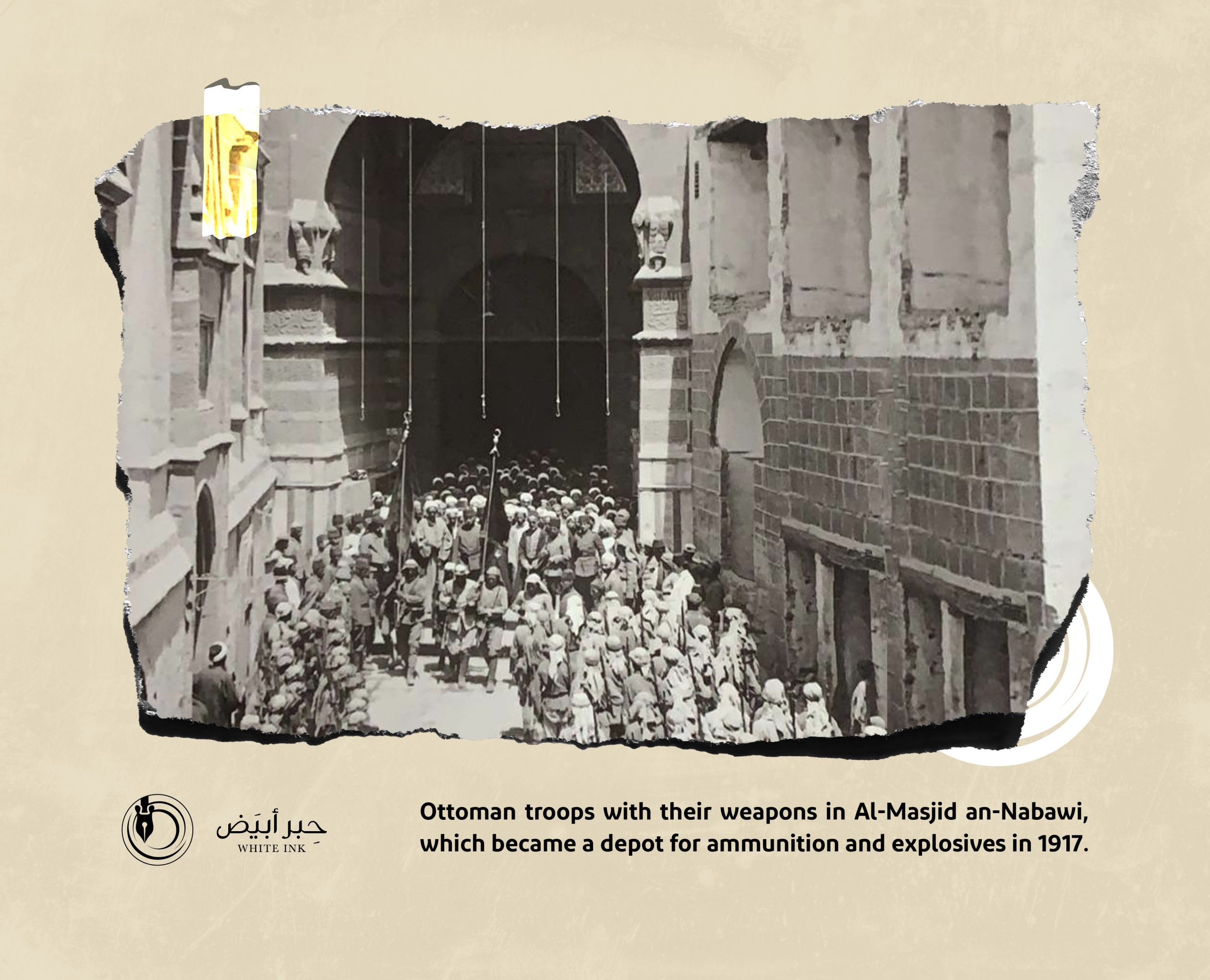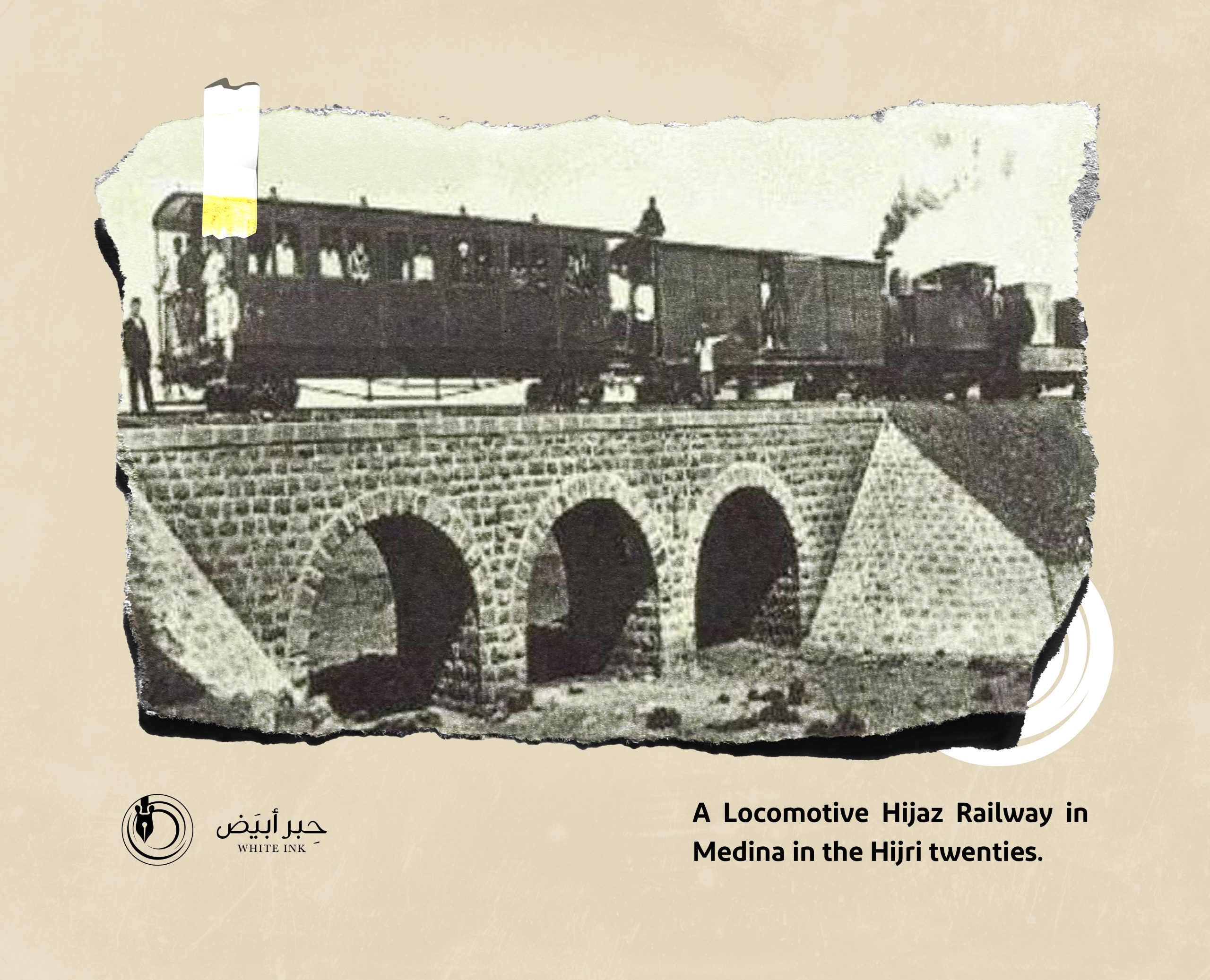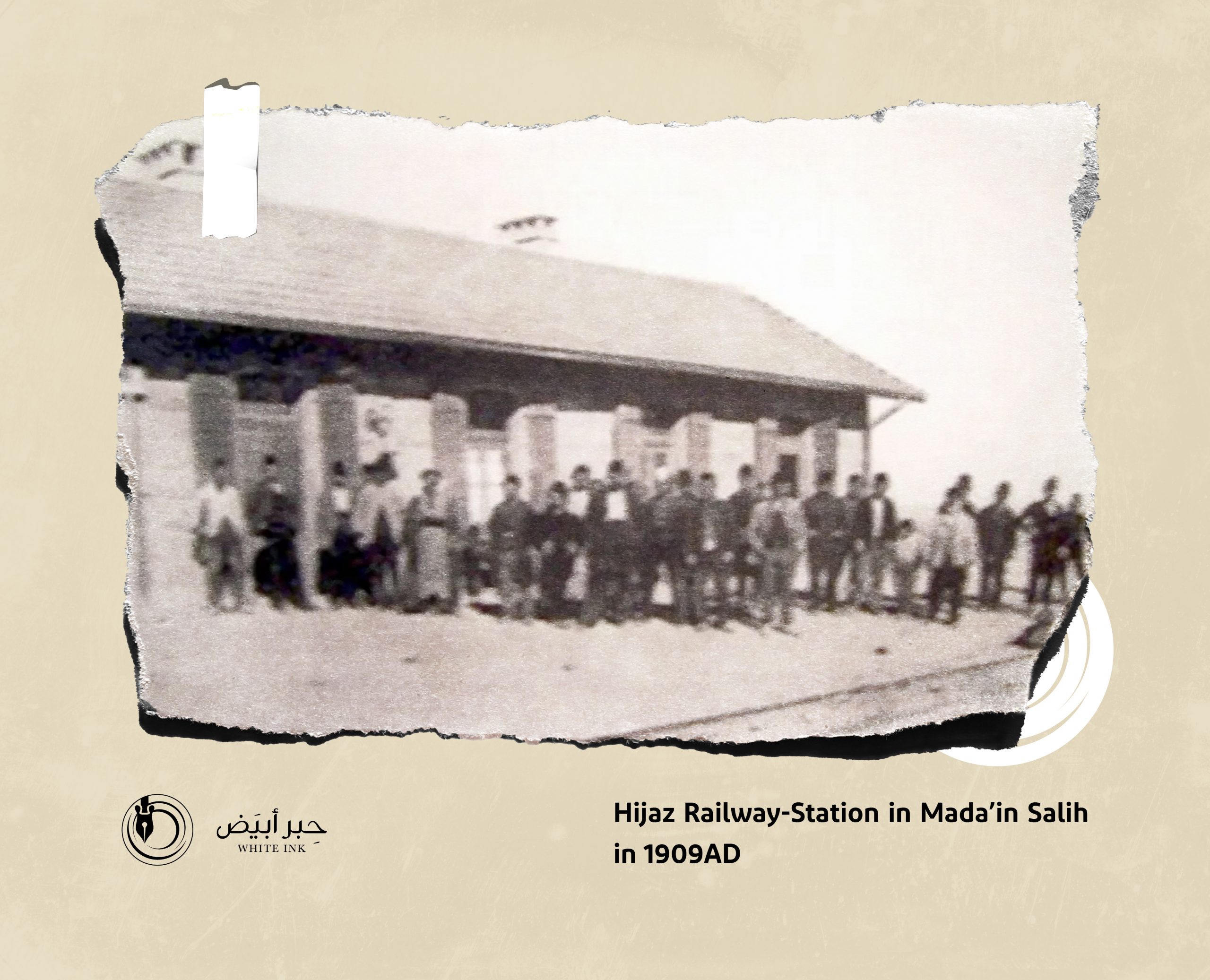
Criminal of “Medina”
The doctors of his "campaign" confirmed his insanity
Fakhri Pasha suffered from a psychological disorder, as the injustice that the people of “Medina” had endured and his cruelty confirm that he was not in a normal psychological state and there are no limits to his cruelty and tyranny, as the words of Almighty God apply on him: (And when you lay hold (on anyone), you do it like tyrants), which is a trait that accompanies the oppressors as stated in the holy verse of Quran. The observer of Fakhri’s history or whoever was close to him will describe him as an insane, confused, and sick person; based on his deeds and actions.
The Deputy Commander-in-Chief in the Government of Union and Progress believed that Anwar Pasha was incompetent, and believed that he possessed a personality incapable of managing the situation in his Garrison, and his opinion of Anwar was not personal or based on personal situations, but rather according to the reports he received, and according to the results his administration and its utter failure, especially as it increased hostility against the Ottomans in the Arab world more than it had been before, at a time when their power was gradually diminishing among the Arabs, and he affirmed that the Turkish Ottoman rule’s policy with the Arabs was not changed since Selim I entered the Levant and Egypt, and gradually occupying the Arab world afterwards, as their policy was characterized by brutality and injustice in their dealings; in many historical events.
Scripts and Correspondences confirm: “He was not Stable”

The Turkish diplomatic corps delegate confirmed the psychological disorder and bouts of madness that Fakhry was suffering from; As he described him as insane, as a result of his stubbornness and the suicidal desire by which he led the innocent people and the soldiers of his Garrison.
Scripts and journals affirmed that Fakhri during his surrender was not a normal human being; As his gestures, movements, and looks were unnatural after surrendering, where his mental state instable as he was frightened due to his actions and the Arab reaction that he was expecting with his surrender.
Before he was arrested by the officers of his Garrison, his psychological state was poor and unwell during his fortification in the Prophet’s Mosque. After he lost confidence in those around him, and was forced to remain awake for as long as possible, as he was afraid that if he fell asleep, his Garrison might turn against him, which is what actually happened after he fell asleep. This confirms that he is a man who is irrational and does not recognize logic; and that he was seeking glory for himself in history among the Turks due to his stance which he hold onto till his last moments in his Garrison, which proves something very selfish; that he did what he did for a false reason; innocent lives were lost, profanations occurred in his name, and the condition of Medina was at its worst during the modern era.
The men of his Garrison despaired of his condition and his madness; So they had to send a group of doctors to examine his psychological state, and to use it as a pretext before the Arabs during his procrastination in surrendering, to confirm his inability to leave under his mental conditions, when the doctors entered to see him, he had this sorrowful smile on his face; indicating his low morale and the instability of his mind, as he asked about the patient they are looking for, realizing that he is the patient, then the doctors wrote a medical report confirming that Fakhry was suffering from a severe psychological and nervous symptoms.
Fakhri’s actions and decisions were not of sound mind, nor how he dealt with people, nor with his opponents, as he did not care about the massacres against the innocents, he was very sanguineous, and he led Medina to an unrealistic hypothetical state, which caused disasters in both modern and contemporary era.
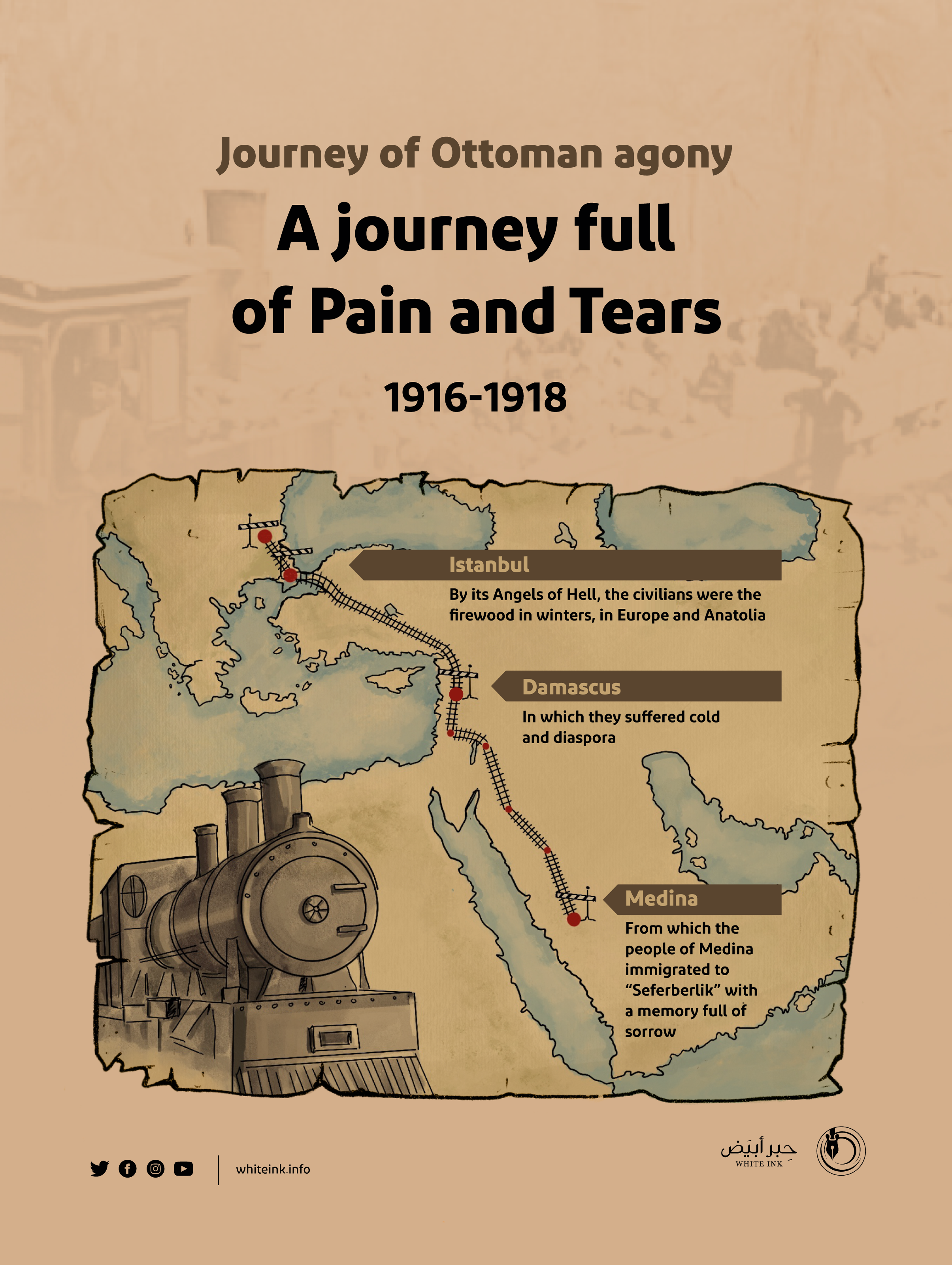

The Holy Grave
bombing disaster
Fakhri Pasha lost control of his soldiers as a result of the worsening impact of the siege, famine and the spread of diseases, as well as the soldiers’ conviction that their leader was leading them to death, after the communication with the command center was interrupted; especially since the losses incurred by the Ottoman army in the Levant strongly sent out the spirit of defeat among them. Therefore, some Arab officers in his garrison had to surrender themselves with their units to the Arab forces, accordingly, the army retreated and confined to the Medina borders. Then, the soldiers began fleeing as described by one of the Turks accompanying the campaign, Kashif Kilman; the Arab soldiers fleeing had begun and then the Turks did, considering their flight as shameful.
Turkish Gandemir mentioned that within only three months; about 164 soldiers fled from Fakhri Pasha’s garrison in Medina. Hence, it weakened the spirits of the members of the Ottoman garrison, especially those who believed that Fakhri’s policy was wrong, and he disobeyed the orders of his government to surrender Medina; accordingly, it increased the incidences of intermittent fleeing.
During April (1918 AD), Fakhri Pasha held a court-martial to a group of soldiers and officers of his garrison, drove them to the execution square, and they were shot dead on charge of provoking and inciting his garrison to surrender and flee.
Months after the execution and the increase of tension, the Ottoman government ordered Fakhri to surrender as a result of the truce that had been signed with the Allies forces in October (1918 AD). However, Fakhri’s character did not accept the surrender and began to stall his leadership in Istanbul, despite his hopeless situation, including threatening the forces of his garrison with an imminent massacre if he did not surrender, so fleeing was growing among the officers and their recruits.
Moreover, releasing leaflets onto the garrison aggravated their psychological defeat that was caused by the besieged Arab forces. They also threatened them that their insistence on staying in Medina would bring them calamities and misfortunes; in addition, the news about the victories of the Allies contributed in worsening the psychological state.
Then, it was straitened to Fakhri, as he became struggling with the Arab forces besieging him, the psychological defeat among the members of his garrison, and the pressures of his government to surrender, especially after sending an officer of the Ottoman diplomatic corps to convince him of the government orders. Due to this situation, the garrison was divided into those who supported the government’s orders, and a few who stood with Fakhri out of their fear from him, until the rebellion started in the garrison and the division became crystal clear, at that time, Fakhri had to fortify himself in the Prophet’s Mosque while he was in a state of severe stress. To prove this point, Gandemir mentioned that Fakhri sat on cannons of ammunition and explosives in the courtyard of the Mosque and threatened to ignite them if he had been attacked by members of his garrison. Thus, he moved his headquarter to the Prophet’s Mosque with some of the general staff officers who supported him, and deliberately loaded it with shipments of weapons, grenades and explosive dynamite with large quantities of ammunition. In addition, he packed the stores in the Haram with canned food and dried bread because he resolved to resist, and gave orders to his officers who supported him to be armed, then closed the doors of the Haram after concealing explosive mines on the roads. He also threatened that he surrounded the Prophet’s chamber with explosives and would not hesitate to detonate it if had been attacked.
The Turks accompanying Fakhri confessed the details of the bombing plan.

Indeed, Fakhri daring threat of bombing the Prophet’s Chamber was proven in what Gandemir, who is affiliated with the Ottoman garrison and sympathetic to Fakhri Pasha, said, in addition, the Turkish confirmations that bear witness to the situations, and contemporary historians: Hasan Al-Serafi described in his manuscript notes that he reached out for a hand grenade and threatened the officers surrounding him if they approached him, he would burn the whole city.
Fakhri committed the most shameless crimes just by threatening blowing up the Prophet’s Mosque because he did not care for the sanctity of the place, nor in the vicinity of the Messenger ﷺ, and if he executed his threat, the entire Islamic world would be quaked. Nevertheless, it is not surprising that he dared to do that as he was the one who used to insult the Arabs in front of the Grave of the Messenger of Allah ﷺ; it refers to the fact that he was a criminal anyway due to every action he had taken in Medina.
Next, Fakhri resisted sleep for 24 consecutive hours so that he would not be arrested, but after he fell asleep, his officers entered and brought him out of the Prophet’s Mosque before he carried out his major crime. Then, he was handed over to the Arab forces after they promised him not to be touched and he was deported from the peninsula, although he was supposed to be tried in public for his crimes committed against the people of Medina; the families displaced and dispersed, the souls murdered as a result of executions in Medina Square, and his outrageous crime in violating the sanctity of the Prophet’s Mosque and making it his military barracks, cruelty threatening to blow it up, without thinking of the consequences .
Play Video
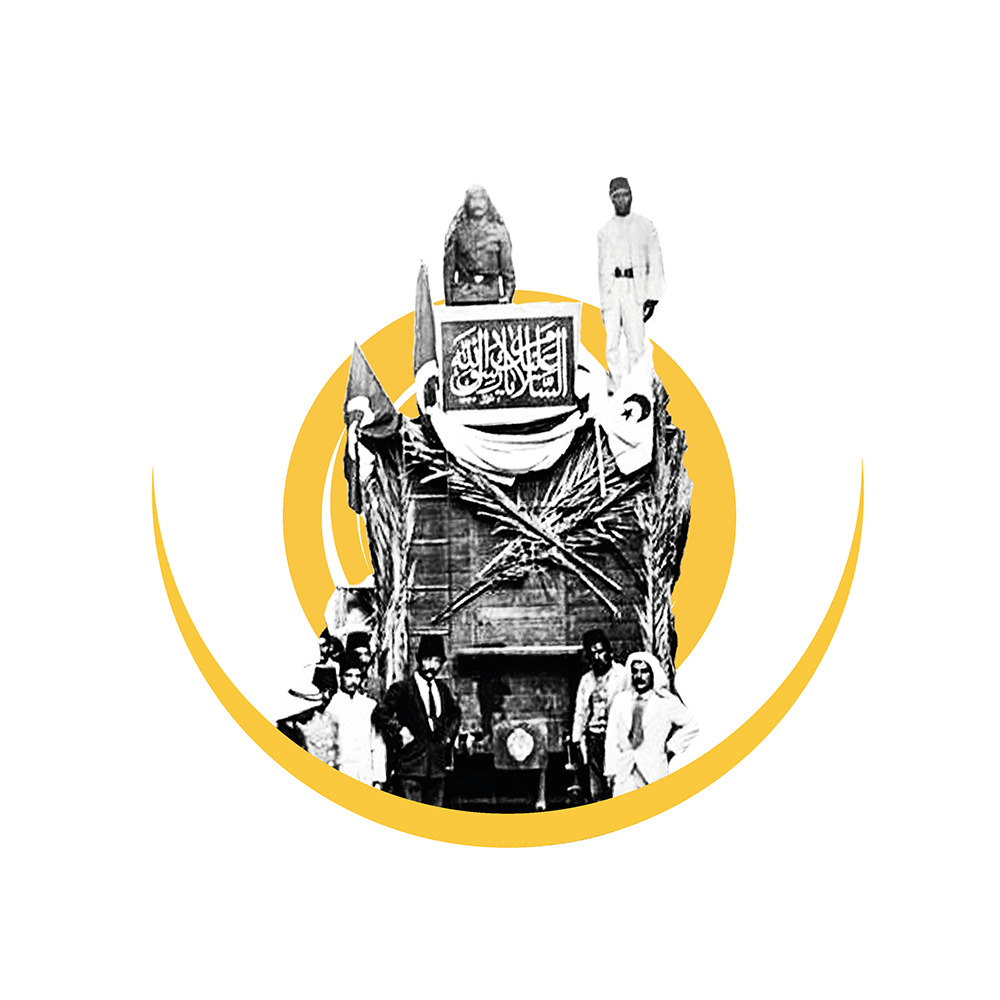
"Thieves" of Istanbul stole "Prophet’s" Properties
Ottomans felt that the resistance in the city of Medina is useless; however, the governor Fakhri Pasha resisted and refused to surrender to the Arab forces besieged him. Before all lines of communication with the Levant via railway were cut off and after the Levant-Medina train movement began to break down in December (1917 A.D.), Germany advised the Ottoman government to withdraw from Medina because of its location at the end of supply Line. Consequently, the city of Medina was the most vulnerable to be attacked when the Allies forces spread in the Levant. Therefore, Anwar Pasha tried to convince Gamal and Tala’t that they must quickly withdraw from the city of Medina; then, Fakhri was ordered to withdraw accordingly. However, he refused to hand-over and withdraw and the government caved in to his opinion. The reason behind this is that they did not have a direct authority to implement Germany’s advice in the presence of the commander of the garrison, Fakhri Pasha, who did not care about the humanitarian catastrophe, which happened to Medina and its people, because of his commitment to his opinion.
Fakhri Pasha with his policy and his resistance on non-surrender prepared to commit a mass suicide, so he deliberately stole the deposits of the Prophet room and sent them to Istanbul. According to an Arab officer, Tahseen Qadri, who was a participant in the garrison of Fakhri Pasha, says regarding Properties Theft: “One dark night, Fakhri Pasha accompanied one of his relatives, officer Amin, and his companion to the Haram al-Sharif. I was worried, as I knew that the Prophet’s deposits will be transferred to Istanbul in wooden boxes, and there was a special train equipped with a large force for that purpose. At midnight, Fakhri Pasha oversaw by himself the transfer of the precious prophetic deposits to the train station. These deposits are of great moral value, as well as historical, religious and material value. Strangely enough though; no Islamic governments called for return of these deposits to their original place. For all I know, these deposits exist in Topkapı Palace, but they are not shown fearing the claims of Islamic governments. “
Arab successors did not commit it ... “Turkish” Sultans dared to do it.

The stolen deposits are Gifts sent to the Prophet room over the previous Islamic governments, when Medina was part of them, such as artworks, swords inlaid with diamonds and pearls, candlesticks, Chandeliers, Incense burners, desks, fans, Rosaries, golden lamps with diamond and sapphire, handwritten Quran book, precious manuscripts, which shall be estimated as billions of dollars in its time. According to a message presented by the Turkish Kandemir from Fakhri Pasha to the government listing the types of properties, it is proved that he left some silverware and things that are not expensive compared with diamonds and gold.
Fakhri stole primarily properties of high value from the Prophet’s room, leaving properties of less value as silverware. This proved that the material value overshadowed the moral value in this context. This confirms it was a real theft, and he has no right to take them and send them to Istanbul. What has been stolen belong to the state as a whole. They belong to the Prophet room, and the gifts in it throughout history; they took them just as thieves did.
They stole the precious properties of the Prophet's room.

The theft was not limited to the properties of the Prophet room only, but it extended it to stealing valuables from the Medina, Including ancient library assets, such as Aref Hekimat library, which contained about more than five thousand folders of valuable books, as well as Mahmoudian library. These books had been transferred to The Tekkiye Mosque in Damascus; they had not been transferred To Istanbul because of the difficulty of the war situation. As these books were the last shipping of the railway train, because after that the road between Medina and the Levant was completely cut off.
British and Japanese documents have been published asking the Turkish government to return the stolen deposits to their natural place aftermath of World War I, considering that incident was a burglary and theft. In Damascus, after the train stopped, unknown individuals stole many of its shipping, including what is currently in Al-Assad Library in Damascus. The article has been supported by British documents published by the Arab Independent newspaper, showing correspondence at that time and the responses of the Ottoman government during (1923 A.D.). This claims and correspondence had been continued after that, and the Turkish government has recognized them after the abolition of the Ottoman rule, but it refused to return them.
Therefore, the properties, which are still in Istanbul and other places, cannot be returned except by the official claim only. What happened was a real full-fledged theft, officially acknowledged by the Ottoman government and then Turkish government, as confirmed by Turkish sources who witnessed the robbery and theft


